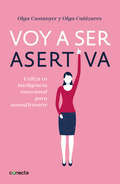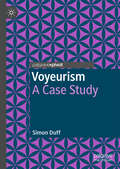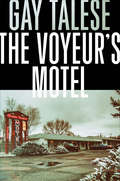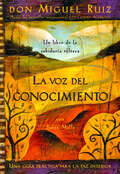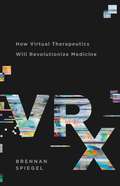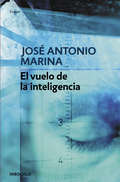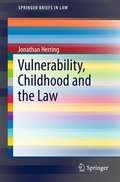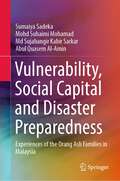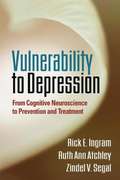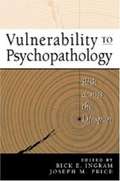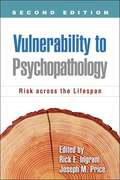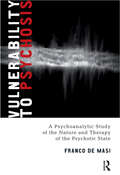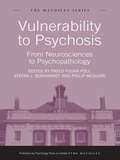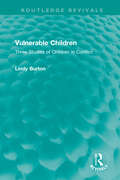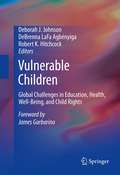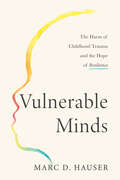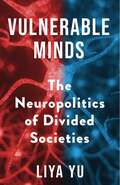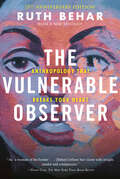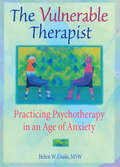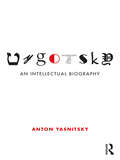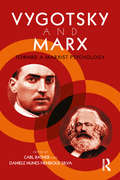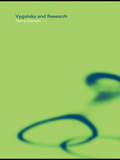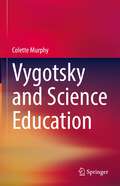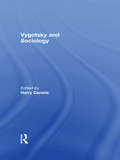- Table View
- List View
Vorwärts bewegen!
by Gabriel AgboEs ist Zeit für euch, vorwärts zu gehen! Eines der größten Geschenke, die der HERR uns macht, ist die Fähigkeit zu erkennen, wann wir an einer bestimmten Stelle oder in einer bestimmten Situation warten und wann wir in die nächste Phase unseres Schicksals eintreten müssen. Es ist Zeit für euch, vorwärts zu gehen! Eines der größten Geschenke, die der HERR uns macht, ist die Fähigkeit zu erkennen, wann wir an einer bestimmten Stelle oder in einer bestimmten Situation warten und wann wir in die nächste Phase unseres Schicksals eintreten müssen. So wie die Schriften uns immer wissen lassen werden, dass für alles Zeit ist. Es gibt eine Zeit zum Bleiben und auch Zeit, um sich zu bewegen. Die Zeit zum Bleiben ist dann, wenn Gott Ihnen ausdrücklich sagt, dass Sie dies tun sollen, oder wenn Sie sich nicht ganz sicher sind, was er von Ihnen will. Aber wenn Sie von ihm gehört haben oder sich seines Willens in einer bestimmten Situation voll bewusst sind, dann ist das einfach die beste Zeit, um einzuziehen und das zu besitzen, was er Ihnen versprochen hat. Unser Erfolg im Leben hängt weitgehend von diesem göttlichen Prinzip ab. In diesem Buch werdet ihr eine Menge darüber und mehr erfahren. Es ist eine Pflichtlektüre.
Voy a ser asertiva: Utiliza tu inteligencia emocional para autoafirmarte
by Olga Castanyer Olga Cañizares GilEn el terreno personal y profesional, las mujeres nos enfrentamos a diario a situaciones en las que la falta de asertividad nos lleva a recurrir a formas de expresión excesivamente agresivas que anulan nuestro mensaje, o bien acabamos por callar ante el temor de provocar un conflicto. Voy a ser asertiva es un manual práctico que expone las competencias básicas para desarrollar la autoestima y la asertividad femeninas. ¿Qué es necesario para que las mujeres (tú, yo, nosotras) nos sintamos completamente seguras, confiadas, capaces e independientes? Quizás nos han enseñado a comportarnos de manera sumisa o al contrario, hemos tenido que aprender a ser agresivas para abrirnos camino en la vida... Sea como sea, en cualquier momento podemos reaprender actitudes, pensamientos y conductas asertivas que nos lleven a sentirnos plenas. Imagínate desarrollando todo este potencial. ¿De qué teserviría?, ¿serías la misma?, ¿qué cambiaría? Para ello necesitaremos conocernos a fondo, aprender a regular bien nuestras emociones, a querernos, a valorarnos, a ser capaces de motivarnos y de ser asertivas. En definitiva: autoafirmarnos desde el respeto y la igualdad. Porque una no nace más o menos asertiva. Se trata de pensamientos y conductas que se aprenden. Pero ¿cómo? Te proponemos iniciar un camino en el que, con la ayuda de las competencias de la inteligencia emocional, podrás conocerte mejor y gustarte de verdad al mismo tiempo que aceptas todo aquello que no te satisface, aprendes a diferenciarte de los demás y a comunicarte con los que te rodean desde tu independencia y respeto teniendo criterios claros y poder así, finalmente, actuar asertivamente. ¿Quieres acompañarnos en este viaje hacia ti misma?
Voyeurism: A Case Study
by Simon DuffThis book is amongst the first of its kind in presenting a case study of voyeurism from a forensic psychology perspective and within the societal context. Simon Duff provides an in-depth description of the assessment, formulation, and treatment of a voyeur and offers a theoretical basis for the behaviour. The book begins by covering a variety of explanations and previous treatments for voyeurs, including learning theories and the aversive treatments that they give rise to. It then moves on to focus on one specific case study, a young man who has exhibited diversity in his voyeuristic offending, before examining relevant details of his experiences in order to develop a formulation of his thinking and behaviour. The formulation and resultant intervention are clearly and accessibly presented, followed by a discussion of how this case provides direction for further research, developments in our theoretical basis for understanding voyeurism, and directions for assessment and intervention.
The Voyeur's Motel (Books That Changed the World)
by Gay TaleseThe controversial chronicle of a motel owner who secretly studied the sex lives of his guests by the renowned journalist and author of Thy Neighbor’s Wife.On January 7, 1980, in the run-up to the publication of his landmark bestseller Thy Neighbor’s Wife, Gay Talese received an anonymous letter from a man in Colorado. “Since learning of your long-awaited study of coast-to-coast sex in America,” the letter began, “I feel I have important information that I could contribute to its contents or to contents of a future book.” The man—Gerald Foos—hen divulged an astonishing secret: he had bought a motel outside Denver for the express purpose of satisfying his voyeuristic desires. Underneath its peaked roof, he had built an “observation platform” through which he could peer down on his unwitting guests.Over the years, Foos sent Talese hundreds of pages of notes on his guests, work that Foos believed made him a pioneering researcher into American society and sexuality. Through his Voyeur’s motel, he witnessed and recorded the harsh effects of the war in Vietnam, the upheaval in gender roles, the decline of segregation, and much more. In The Voyeur’s Motel. “the reader observes Talese observing Foos observing his guests.” An extraordinary work of narrative journalism, it is at once an examination of one unsettling man and a portrait of the secret life of the American heartland over the latter half of the twentieth century (Daily Mail, UK).“This is a weird book about weird people doing weird things, and I wouldn’t have put it down if the house were on fire.” —John Greenya, Washington Times
La voz del conocimiento: Una guía práctica para el arte de las relaciones (Un libro de la sabiduría tolteca)
by null Don Miguel Ruiz null Janet MillsEn La voz del conocimiento, Miguel Ruiz nos recuerda una verdad sencilla y profunda: el único modo de acabar con nuestro sufrimiento emocional y recuperar nuestra dicha de vivir consiste en dejar de creer en mentiras — principalmente sobre nosotros mismos. Basado en la antigua sabiduría tolteca, este penetrante libro nos enseña a recuperar nuestra fe en la verdad y a regresar a nuestro propio sentido común. Ruiz cambia la manera en la que nos percibimos a nosotros mismos y a los demás. Después, abre la puerta a una realidad que percibíamos cuando sólo teníamos uno o dos años de edad: una realidad de verdad, amor y dicha. &“Nacemos en la verdad, pero crecemos creyendo en mentiras. . . . Una de las mayores mentiras de la historia de la humanidad es la mentira de nuestra imperfección.&” — don Miguel Ruiz Más sobre el libro Antes de aprender a hablar, nuestra verdadera naturaleza es la de amar, ser felices, explorar y disfrutar la vida. Escuchamos la voz silenciosa de nuestra integridad. Una vez que aprendemos a hablar, las personas que nos rodean captan nuestra atención y nos programan con conocimiento. Pero ese conocimiento está contaminado por las mentiras. Al centrar nuestra atención en el conocimiento que está en nuestra cabeza, dejamos de percibir el mundo a través de los ojos del amor; sólo percibimos lo que hemos aprendido a creer. Estamos a merced de la voz del conocimiento. Esa voz no para de hablar, de juzgar, de chismorrear, y de maltratarnos. Sabotea nuestra felicidad y nos impide disfrutar de una realidad basada en la verdad y el amor. Ruiz nos enseña a recobrar la voz silenciosa de nuestra integridad y a encontrar la paz interior. Cuando la voz del conocimiento deja de controlarnos, nuestra vida se convierte en una expresión de nuestro yo auténtico, tal como era antes de que aprendiéramos a hablar. Entonces, regresamos a la verdad, al amor, y vivimos de nuevo en la felicidad.
VRx: How Virtual Therapeutics Will Revolutionize Medicine
by Brennan SpiegelA leading doctor unveils the groundbreaking potential of virtual medicine.Brennan Spiegel has spent years studying the medical power of the mind, and in VRx he reveals a revolutionary new kind of care: virtual medicine. It offers the possibility of treating illnesses without solely relying on intrusive surgeries or addictive opioids.Virtual medicine works by convincing your body that it's somewhere, or something, it isn't. It's affordable, widely available, and has already proved effective against everything from burn injuries to stroke to PTSD. Spiegel shows how a simple VR headset lets a patient with schizophrenia confront the demon in his head, how dementia patients regain function in a life-size virtual town, and how vivid simulations of patients' experiences are making doctors more empathic.VRx is a revelatory account of the connection between our bodies and ourselves. In an age of overmedication and depersonalized care, it offers no less than a new way to heal.
El vuelo de la inteligencia
by José Antonio MarinaJosé Antonio Marina nos introduce en el fascinante camino de la inteligencia para poder utilizar mejor todas sus posibilidades y estimular su desarrollo. Un imprescindible libro de cabecera para todos aquellos que quieran sacar partido de su propia inteligencia: para ello hay que entender qué es y en qué consiste la inteligencia, qué es ser inteligente. <P><P>José Antonio Marina nos toma de la mano y con amor y humor, sabiduría e infinita paciencia nos introduce en el fascinante camino que nos lleva a ese deseo que mueve toda vida: aprender a aprender. Por ello estas páginas hablan de pájaros, pero también del sistema monetario; de poesía, pero también de ciencia y política, del lenguaje y de las imágenes, del poder de la mente y de los sentidos. Y al acabar la lectura nos habremos vuelto un poco más inteligentes; por esta razón éste es un libro lleno de optimismo que alegra, también, el corazón.
Vulnerability, Childhood and the Law (SpringerBriefs in Law)
by Jonathan HerringThis book will challenge the orthodox view that children cannot have the same rights as adults because they are particularly vulnerable. It will argue that we should treat adults and children in the same way as the child liberationists claim. However, the basis of that claim is not that children are more competent than we traditionally given them credit for, but rather that adults are far less competent than we give them credit for. It is commonly assumed that children are more vulnerable. That is why we need to have a special legal regime for children. Children cannot have all the same rights as adults and need especial protect from harms. While in the 1970s “child liberationists” mounted a sustained challenge to this image, arguing that childhood was a form of slavery and that the assumption that children lacked capacity was unsustainable. This movement has significantly fallen out of favour, particularly given increasing awareness of child abuse and the multiple ways that children can be harmed at the hands of adults. This book will explore the concept of vulnerability, the way it used to undermine the interests of children and our assumptions that adults are not vulnerable in the same way that children are. It will argue that a law based around mutual vulnerability can provide an approach which avoids the need to distinguish adults and children.
Vulnerability, Social Capital and Disaster Preparedness: Experiences of the Orang Asli Families in Malaysia
by Sumaiya Sadeka Mohd Suhaimi Mohamad Md Sujahangir Sarkar Abul Quasem Al-AminThis book addresses increasing concerns regarding the relationship between social capital and disaster, highlighting conceptual definitions related to social capital and disaster, family, community, vulnerability, disaster experience, and preparedness. Focusing on a contemporary case of disaster management in Malaysia, the authors explore and establish linkages between the level of social capital and disaster preparedness among the indigenous Orang Asli people. Taking the case of the Orang Asli families as a point of departure, the book presents solutions for mobilizing social capital for disaster preparedness through multi-stakeholder involvement, promoting participation in awareness programs, ensuring indigenous people’s access to resources, and proposing a prioritization of local values and culture in enabling proper planning and coordination for more disaster-resilient communities in Malaysia, Southeast Asia, and beyond. The book is broadly relevant to cases in similar economic settings where indigenous people are lagging behind in disaster preparedness. An excellent resource for sociologists, this pioneering book collates various concepts and theories relating to social and ecological networks and systems, family resilience, and stress and coping mechanisms. It is relevant to researchers focused on disasters in developing countries, globally, particularly those focused on indigenous communities.
Vulnerability to Depression
by Rick Ingram Ruth Ann AtchleyProviding a cutting-edge examination of the mechanisms underlying depression, this volume integrates important areas of research that have largely remained separate. The authors explore both the cognitive and neurological processes that make some people more vulnerable than others to developing depression and experiencing recurrent episodes. They also probe how these processes interact-how negative life experiences, maladaptive belief systems, and patterns of thinking may actually affect neural circuitry, and vice versa. Explaining sophisticated theory and research in an accessible style, the book highlights the implications for improving clinical practices and patient outcomes.
Vulnerability to Psychopathology: Risk Across the Lifespan
by Joseph M. Price Rick E. IngramPresents 20 contributions primarily written by psychology professors addressing vulnerability to psychopathological disorders across the lifespan. The volume introduces, reviews, and contextualizes concepts of vulnerability in psychopathology. The idea of personality from the perspective of childhood development is then discussed, with implications for adult personality disorders. The major Axis I disorders are then examined in terms of adolescents and adults: alcohol/substance abuse, depression, anxiety, schizophrenia, and eating disorders. Summaries and ideas for future exploration are also covered. Annotation c. Book News, Inc., Portland, OR (booknews.com)
Vulnerability to Psychopathology, Second Edition: Risk across the Lifespan
by Joseph Price Rick IngramThis state-of-the-art work has been highly praised for bridging the divide between adult and developmental psychopathology. The volume illuminates the interplay of biological, cognitive, affective, and social-environmental factors that place individuals at risk for psychological disturbance throughout development. Childhood-onset and adult forms of major disorders are examined in paired chapters by prominent clinical researchers. An integrative third chapter on each disorder then summarizes what is known about continuity and change in vulnerability across the lifespan. Implications for assessment, treatment, and prevention are also considered.
Vulnerability to Psychosis: A Psychoanalytic Study of the Nature and Therapy of the Psychotic State
by Franco De MasiThis book postulates that the trigger of the psychotic condition is located in the basic processes which structure the first emotional relations. It presents some of the reasons why patients succumb to the attraction of a course doomed to result in the permanent derangement of their minds.
Vulnerability to Psychosis: From Neurosciences to Psychopathology (Maudsley Series)
by Paolo Fusar-Poli Stefan J. Borgwardt Philip McGuireEarly clinical intervention in psychosis is now a major objective of mental health services and the development of specialist intervention services has greatly facilitated research on the early phases of this disorder. In this book, contributors provide a review of the neurobiological research in people at high risk of psychosis, focusing on the transition from being at a high risk state to their first episode. Contributors consider unaffected family members and twin studies as well as the individual’s data before and after the onset of the illness. The environmental factors that contribute to a psychotic episode are also examined. Vulnerability to Psychosis presents neurobiological findings in the context of what is now known about the psychopathology and cognitive impairments that are evident in people at high risk of psychosis. It will be essential reading for clinicians working with this client group, and will interest academics looking for state of the art information in this field.
Vulnerable Children: Three Studies of Children in Conflict: Accident Involved Children, Sexually Assaulted Children and Children with Asthma (Routledge Revivals)
by Lindy BurtonOriginally published in 1968, this book was an experimental investigation into some personality characteristics associated with three types of child problem behaviour. The behaviour of the children in school is described, and their underlying personality needs, as evinced by the stories they told to the author, are assessed. The behaviour at home of the asthmatic and road accident children is examined and their early developmental history traced. The part played by prolonged environmental stress, constitutional vulnerability and transitory needs is considered.
Vulnerable Children
by Deborah J. Johnson Robert K. Hitchcock Debrenna Lafa AgbényigaThey are laborers, soldiers, refugees, and orphans. In areas of the world torn by poverty, disease, and war, millions of children are invisible victims, deprived of home, family, and basic human rights. Their chances for a stable adult life are extremely slim. The powerful interdisciplinary volume Vulnerable Children brings a global child-rights perspective to the lives of indigenous, refugee, and minority children in and from crisis-prone regions. Focusing on self-determination, education, security, health, and related issues, an international panel of scholars examines the structural and political sources of children's vulnerabilities and their effects on development. The book analyzes intervention programs currently in place and identifies challenges that must be met at both the community and larger policy levels. These chapters also go a long way to explain the often-blurred line between vulnerability and resilience. Included in the coverage: Dilemmas of rights-based approaches to child well-being in an African cultural context.Poverty and minority children's education in the U.S.: case study of a Sudanese refugee family.The heterogeneity of young children's experiences in Kenya and Brazil.A world tour of interventions for children of a parent with a psychiatric illness.An exploration of fosterage of Owambo orphans in Namibia.UNICEF in Colombia: defending and nurturing childhood in media, public, and policy discourses. Vulnerable Children is a must-have volume for researchers, graduate students, and clinicians/professionals/practitioners across a range of fields, including child and school psychology, social work, maternal and child health, developmental psychology, anthropology, sociology, social policy, and public health.
Vulnerable Minds: The Harm of Childhood Trauma and the Hope of Resilience
by Marc D. HauserA new, hopeful pathway to understanding children&’s trauma and providing effective interventions to build healthier communitiesEach year at least a billion children around the world are victims of adverse childhood experiences (ACEs) that range from physical abuse to racial discrimination to neglect and food deprivation. The brain plasticity of our most vulnerable makes the adverse effects of trauma only that much more damaging to mental and physical development. Those dealt a hand of ACEs are more likely to drop out of school, have a shorter life, abuse substances, and suffer from myriad mental health and behavioral issues. The crucial question is: How do we intervene to offer these children a more hopeful future? Neurobiologist and educator Dr. Marc Hauser provides a novel, research-based framework to understand a child&’s unique response to ACEs that goes beyond our current understanding and is centered around the five Ts—the timing during development when the trauma began, its type, tenure, toxicity, and how much turbulence it has caused in a child&’s life. Using this lens, adults can start to help children build resilience and recover—and even benefit—from their adversity through targeted community and school interventions, emotional regulation tools, as well as a new frontier of therapies focused on direct brain stimulation, including neurofeedback and psychedelics. While human suffering experienced by children is the most devastating, it also presents the most promise for recovery; the plasticity of young people&’s brains makes them vulnerable, but it also makes them apt to take back the joy, wonder, innocence, and curiosity of childhood when given the right support. Vulnerable Minds is a call to action for parents, policymakers, educators, and doctors to reclaim what&’s been lost and commit ourselves to our collective responsibility to all children.
Vulnerable Minds: The Neuropolitics of Divided Societies
by Liya YuNeuroscience research has raised a troubling possibility: Could the tendency to stigmatize others be innate? Some evidence suggests that the brain is prone to in-group and out-group classifications, with consequences from ordinary blind spots to full-scale dehumanization. Many are inclined to reject the argument that racism and discrimination could have a cognitive basis. Yet if we are all vulnerable to thinking in exclusionary ways—if everyone, from the most ardent social-justice advocates to bigots and xenophobes, has mental patterns and structures in common—could this shared flaw open new prospects for political rapprochement?Liya Yu develops a novel political framework that builds on neuroscientific discoveries to rethink the social contract. She argues that our political selves should be understood in terms of our shared social capacities, especially our everyday exclusionary tendencies. Yu contends that cognitive dehumanization is the most crucial disruptor of cooperation and solidarity, and liberal values-based discourse is inadequate against it. She advances a new neuropolitical language of persuasion that refrains from moralizing or shaming and instead appeals to shared neurobiological vulnerabilities. Offering practical strategies to address those we disagree with most strongly, Vulnerable Minds provides timely guidance on meeting the challenge of including and humanizing others.
The Vulnerable Observer: Anthropology That Breaks Your Heart
by Ruth BeharEloquently interweaving ethnography and memoir, award-winning anthropologist Ruth Behar offers a new theory and practice for humanistic anthropology. She proposes an anthropology that is lived and written in a personal voice. She does so in the hope that it will lead us toward greater depth of understanding and feeling, not only in contemporary anthropology, but in all acts of witnessing.
The Vulnerable Therapist: Practicing Psychotherapy in an Age of Anxiety
by Helen W. CoaleA passionate, proactive stance on the present state of psychotherapy, The Vulnerable Therapist: Practicing Psychotherapy in an Age of Anxiety picks the brains of contemporary mental health professionals and finds a common symptom--fear. You’ll see why litigation, market forces, and ethical confusion have raised a dark umbrella of angst over psychotherapy practices and discover what therapists can do to restore the profession to its former good self.The Vulnerable Therapist will capture your interest with its broad systemic approach, contextual analysis, fascinating case studies, and anecdotal material. You’ll see the need for improvement at the institutional and individual levels of the psychotherapy professions. Specifically, you’ll read about: social, cultural, and contextual aspects of the crisis of meaning in psychotherapy professional responses to the crisis of meaning which create ethical dilemmas for individual practitioners the power of language to construct and control mental health beliefs psychotherapy’s core constructs and ethical “buzzwords” psychological and legal risks in practicing psychotherapy today specific problems with licensing boards and other complaint channels problems with rule-based ethics alternative models for creating ethical therapist-client relationships Today, more and more, excessive litigation and market-driven forces are imposing standard ethics decisions on psychotherapists, forcing them to see their clients through the clouded lenses of risk management and liability instead of through the lens of therapeutic need. Much like the symptomatic children whose dysfunctional family stops blaming them and starts shouldering part of the “problem,” distraught therapists need the psychotherapy profession to address its own psychopathology at the institutional level. The Vulnerable Therapist shows how you can contribute to a total revamping of the mental health professions in a way that facilitates rather than impedes ethical functioning.
Vygotsky: An Intellectual Biography
by Anton Yasnitsky– The most famous Russian psychologist, whose life and ideas are least known? – A pioneer of psychology who said virtually nothing new? – A simple man who became a genius after he died? This fundamentally novel intellectual biography offers a 21st-century account of the life and times of Lev Vygotsky, who has long been considered a pioneer in the field of learning and human development. The diverse Vygotskian literature has created many distinct images of this influential scientist, which has led many researchers to attempt to unearth ‘the real Vygotsky’. Rather than join this quest to over-simplify Vygotsky’s legacy, this book attempts to understand the development of ‘the multiple Vygotskies’ by exploring a number of personae that Vygotsky assumed at different periods of his life. Based on the most recent archival, textological and historical investigations in original, uncensored Russian, the author presents a ground-breaking account that is far from the shiny success story that is typically associated with ‘the cult of Vygotsky’. This book will be an essential contribution to Vygotskian scholarship and of interest to advanced students and researchers in history of psychology, history of science, Soviet/Russian history, philosophical psychology, and philosophy of science.
Vygotsky and Marx: Toward a Marxist Psychology
by Carl Ratner and Daniele Nunes Henrique SilvaThis important book fills two interrelated gaps in the field of psychology, first by developing a Marxist orientation to psychology and second by explaining how psychological pioneer Lev Vygotsky contributed greatly to this trend. Through outlining core principles in Marxist psychology, the book offers a framework for continuing Vygotsky’s Marxist legacy in new areas of the field. This book first documents the neglect in Vygotskyian studies of his deep use of Marxist concepts, and then subsequent chapters overcome this neglect. They explain the use of many Marxist concepts in his theoretical and methodological writings, demonstrating how Vygotsky utilized specific Marxist meanings in his work on consciousness, signs, development, imagination, creativity, secondary language acquisition, and unit of analysis. Chapters also address how Vygotsky dealt with incompatible theories and methodologies, illustrating how Marxist and Vygotskyian psychology can grow from anti-Marxist, anti-Vygotskyian approaches to psychology, such as psychoanalysis.This book marks an original contribution to the field of psychology, offering a new understanding of both Vygotsky’s work and cultural and Marxist psychology. Furthermore, it expands the field of Marxism to include psychology. It will be of interest to all students and researchers of cultural, educational, and developmental psychology as well as the history of psychology. It will also appeal to social theorists and Marxist scholars.
Vygotsky and Research
by Harry DanielsThis book provides readers with an overview of the implications for research of the theoretical work which acknowledges a debt to the writings of L.S. Vygotsky. A concise introduction to Vygotsky’s original thesis and discussions on his approach to research methods is given; this is followed by an exploration of the research practices which have arisen in fields developed on the basis of his original thesis. These include: Socio-cultural studies with a focus on mediated action; Distributed Cognition, Situated Cognition and Activity Theory. To aid understanding, chapters devoted to each area will provide excellent accounts of specific studies which illustrate the underlying methodological principles and the specific methods which are being deployed. In each case assumptions and limitations are discussed. The book concludes with some proposals for future developments at both methodological and conceptual levels.
Vygotsky and Science Education
by Colette MurphyThis book highlights those aspects of Vygotskian theory which are most cogent to Science Education, including the Zone of Proximal Development (ZPD), concept development, play and imagination. Whilst these and other Vygotskian constructs apply to both research and practice in all forms of Science Education, this book employs a specific and critical focus on one or two key concepts for each context. Thus play and imagination are explored in depth in the chapter on science in early childhood learning, the ZPD is considered in depth in the primary school science chapter, and concept development in the secondary-level chapter. Chapters on higher education science learning and teaching, science teacher education, informal science learning, science education research, and the scientific endeavour itself draws on those aspects of Vygotskian theory which relate most closely. This book makes an important contribution to Vygotskian theory. Never before has it been applied so widely and comprehensively to the field of science and STEM education. The book is intended for students and academics in science and STEM education and the social sciences. It is also of interest to Vygotsky scholars and those involved in the analysis of pedagogic practice within and beyond science and STEM education.
Vygotsky and Sociology
by Harry DanielsBuilding on earlier publications by Harry Daniels, Vygotsky and Sociology provides readers with an overview of the implications for research of the theoretical work which acknowledges a debt to the writings of L.S. Vygotsky and sociologists whose work echoes his sociogenetic commitments, particularly Basil Bernstein. It provides a variety of views on the ways in which these two, conceptually linked, bodies of work can be brought together in theoretical frameworks which give new possibilities for empirical work. This book has two aims. First, to expand and enrich the Vygotskian theoretical framework; second, to illustrate the utility of such enhanced sociological imaginations and how they may be of value in researching learning in institutions and classrooms. It includes contributions from long-established writers in education, psychology and sociology, as well as relatively recent contributors to the theoretical debates and the body of research to which it has given rise, presenting their own arguments and justifications for forging links between particular theoretical traditions and, in some cases, applying new insights to obdurate empirical questions. Chapters include: Curriculum and pedagogy in the sociology of education; some lessons from comparing Durkheim and Vygotsky Dialectics, politics and contemporary cultural-historical research, exemplified through Marx and Vygotsky Sixth sense, second nature and other cultural ways of making sense of our surroundings: Vygotsky, Bernstein, and the languaged body Negotiating pedagogic dilemmas in non-traditional educational contexts Boys, skills and class: educational failure or community survival? Insights from Vygotsky and Bernstein. Vygotsky and Sociology is an essential text for students and academics in the social sciences (particularly sociology and psychology), student teachers, teacher educators and researchers as well as educational professionals.

